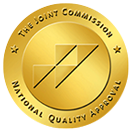Turning negatives into positives is one of the key elements of Solution-Focused Therapy, which makes the client’s strengths the focus of each session. Included in SAMHSA’s National Registry of Evidence-Based Programs & Practices (NREPP), Solution-Focused Therapy utilizes acknowledgment, compliments, scaling, goal negotiation, gratitude, and validation to help clients identify strengths and resources to attain their goals.
Acknowledgement
The therapist uses “For You” statements to acknowledge and validate a person’s feelings about a situation. To a mother, the therapist might say something like, “This must be really frightening for you to witness your daughter struggling with substance abuse and refusing to accept treatment.” To a son who refuses treatment, a therapist might say, “It must be really frustrating for you when your parents are forcing you to enter a rehab program, isn’t it?” The addiction therapist reads body language and uses active listening skills to gauge the emotional barometer of both clients and their loved ones.
Compliments
Many individuals who suffer from substance abuse have a poor self-image, so compliments go a long way in building one’s self-esteem. During a counseling session, the therapist pays close attention to the client’s strengths and resources and points them out as often as possible. Even negatives can be turned into positives, as the therapist helps the client see it in a new light. For example, if clients cannot say anything positive about themselves at all, therapists can point out that the skills the clients used to obtain their drug of choice could be transferred to a different context.
Scaling
Addiction therapists have their clients rank their priorities on a scale of 1-10. For example, the therapist may ask questions like, “How satisfied are you with attaining your goals? Which goal is the most important to you right now? How important is sobriety to you?” Questions like these help therapists to gauge the level of urgency, confidence, progress, and motivation for change that clients possess during various stages of recovery. Clients are empowered to see for themselves whether or not they are achieving their dreams, which increases motivation for change.
Goal Negotiation
In goal negotiation, counselors learn about their clients’ motivation for drug use through a series of questions that reduce the likelihood of defensive answers. For example, rather than asking a client, “Why are you using these drugs?” a counselor might ask, “How does this drug help you cope with that situation?” These non-judgmental, open-ended questions not only help addiction therapists gain insight into their clients’ motivation, but they also assist clients in seeing for themselves how substance abuse obstructs the fruition of their dreams and goals. For clients who have one foot in and one foot out of treatment, goal negotiation helps clear the ambivalence and motivate them to be focused on what they want in life and see addiction therapy as a means to an end.
Gratitude Statements
Few things on Earth are more powerful than gratitude statements, especially if you say them to the people who mean the most to you. In Solution-Focused Therapy, clients and loved ones will be asked to say what they appreciate the most about each other. If they are not used to hearing it, clients and their family members will be moved to tears as words of love and gratitude are exchanged.
Identifying and Highlighting Victories
When counselors intentionally point out any victories, small or large, they are validating their clients’ progress and the measure of success in the program, which fuels their motivation to stay in addiction treatment. Milestones may include refraining from relapse, being emotionally transparent while managing cravings, reflecting upon one’s consequences of actions, successfully achieving a goal or showing consideration for one’s impact on other relationships. As counselors explore these positive points with their clients, they may discover other additional untapped resources that will help clients in their recovery.
New Method Wellness incorporates evidence-based practices and holistic methods to treat the mind, soul and body of every client. To find out how Solution-Focused Therapy can help your loved one, please contact us at +1 (866) 951-1824!


